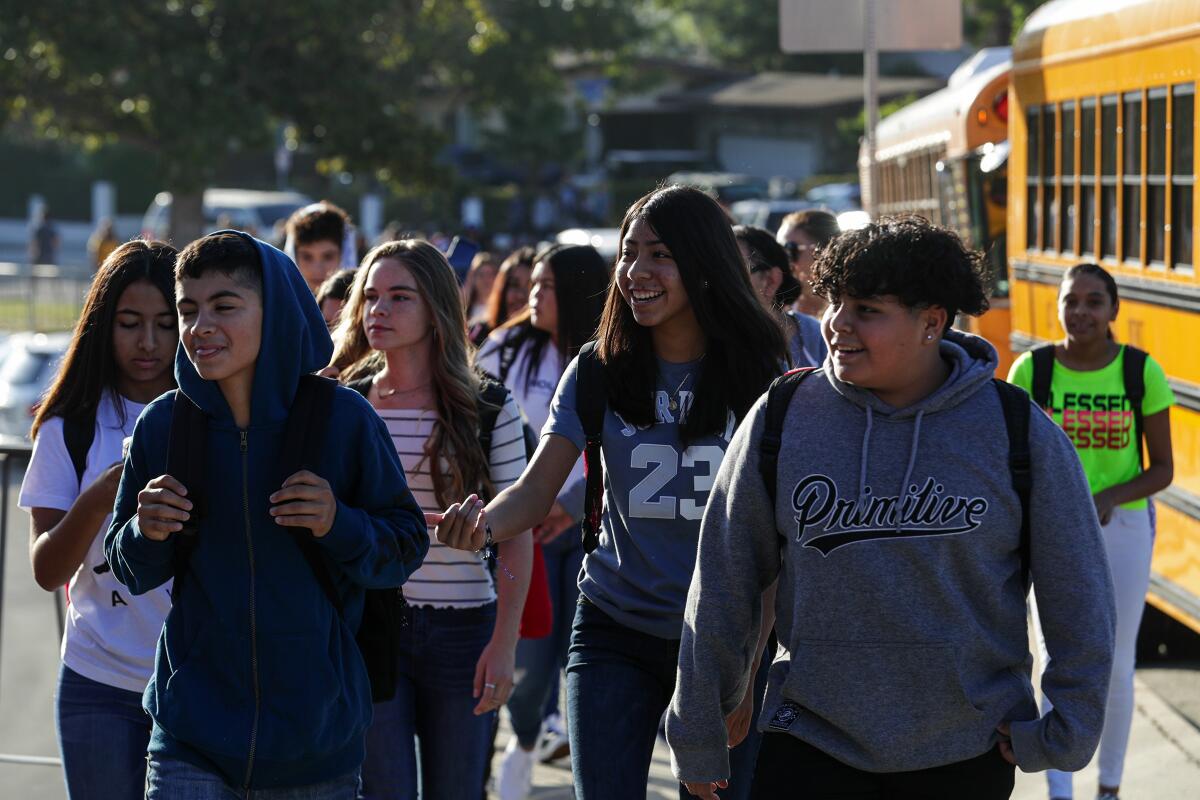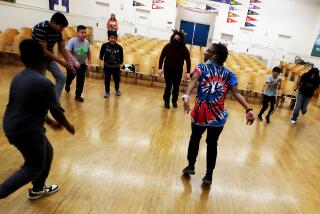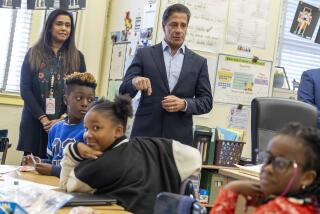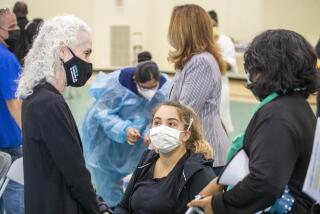L.A. Unified plans for teaching by television after canceling all large gatherings

All large student and staff gatherings in Los Angeles Unified schools have been canceled due to the novel coronavirus pandemic, L.A. Unified Supt. Austin Beutner told parents in a letter and robocall on Wednesday night.
And in a retro move in line with the unusual times, the nation’s second-largest school system is now preparing to offer students instruction by television.
On Thursday, Beutner announced a partnership with public broadcasting giant PBS SoCal/KCET to prepare programming that would go on air in conjunction with any closing of schools.
No schools are closed as of yet, but LAUSD has decided that student competitions and sports games — considered to be large gatherings — will now occur “without spectators.”
The steps with PBS SoCal/KCET are part of larger efforts to deal with the outbreak of the novel coronavirus — limiting its spread, but also planning for how teaching and other operations would continue in modified form.
“The content is deep and rich and learning will continue,” Beutner said in an interview Thursday morning. “We started with what’s good — what standards-based instruction looks like. We didn’t start with what’s good TV.”
All the same, these offerings are intended to include some very good TV — including, for example, documentaries by Ken Burns that would fit into a history or government class. The materials are being pulled from the PBS SoCal/KCET library, programs that often already include a syllabus or framework for academic study.
One problem, however, was how to handle the reality that different grade levels require vastly different instructional materials. The solution being developed is to offer programming for varying ages on three separate channels.
The KCET channel plans to offer high school level programming. KLCS — which is operated by L.A. Unified — would offer content for grades 3 through 8. And PBS SoCal would manage preschool through grade 2.
While it would be impossible to replicate a full day of instruction for every grade and academic level, the move still could prove to be the most comprehensive national effort yet to offer a school day on television.
Though that idea may seem about 20 years out of date given widespread use of the internet, Beutner noted that a quarter of families in L.A. Unified lack adequate broadband access for online studies and the district only has about half the devices it would need to send computers home with students, which also would raise additional complications.
Staff at L.A. Unified and PBS SoCal/KCET have been working intensively since Monday to ramp up planning.
“When we sat together with our teams on Monday, we started talking about goals and key objectives,” said Andrew Russell, PBS SoCal/KCET President & CEO. “That first one was how do we serve everybody given that some students won’t have access to the internet?”
Shows cleared for broadcast include: “Peg + Cat” for pre-kindergarten students; “Cyberchase” for grades 3 through 5; “Nova” for grades 6 through 8, and the Burns documentary on the Civil War for high school.
The school system does not plan to rely only on TV, however. Many district students have online accounts through which they can receive and turn in assignments. There also are online courses available through providers that specialize in that field. And Beutner said paper packets for work at home also would remain an option.
A key goal, he said, is for students to maintain a connection with teachers.
The district, he added, also is developing plans to continue feeding students and paying employees.
The ban on gatherings was a response to advice from health officials.
“We are implementing, effective immediately, a series of steps based on recommendations from public health officials,” Beutner said in the message to families about 7:45 p.m. “All large student and staff gatherings are canceled, as well as off-campus visits by students and staff to public places where crowds gather.”
Beutner sent the following in a separate directive to school leaders Wednesday:
- Cancel or postpone all large gatherings, assemblies and school open houses. In simple terms, if the gathering has more people than you might find in a classroom, students and staff should not participate.
- Athletic events and other similar activities can continue, but without spectators attending.
- Cancel or postpone all in-person organizational and professional development meetings.
- Try to use Zoom, conference calls or other ways to convene a virtual gathering.
- Cancel all outside use of school facilities.
- Cancel all school trips to public venues where there is exposure to crowds.
- Exclude from school campuses all students, staff, faculty members or visitors for 14 days who have traveled outside the United States.
The decision comes after the school board declared a state of emergency Tuesday, giving Beutner the powers to act quickly in case the virus does reach schools.
The declaration gives Beutner the authority to relocate students and staff, revise student transportation arrangements and approve alternative educational options. It also gives him authority to provide paid leaves of absence for employees due to quarantine or illness, assign staff to serve as disaster-service workers, and order necessary alterations, repairs or improvements to district property.
None of the confirmed coronavirus cases in L.A. County are known to be connected to L.A. Unified schools, Beutner told parents, and the social distancing protocols are a precautionary measure.
“Public health officials also tell us it is appropriate for schools to remain open and on as normal a schedule as possible,” he wrote.
Although many colleges and universities have closed and moved completely to online learning, it is more difficult for K-12 schools to do so.
“The colleges and universities are already equipped” to offer classes online and have been doing it for years, explained Pomona Unified schools spokesman Oliver Unaka. But K-12 classes rely “a lot on in-person, day-to-day type things.”
More to Read
Sign up for Essential California
The most important California stories and recommendations in your inbox every morning.
You may occasionally receive promotional content from the Los Angeles Times.












